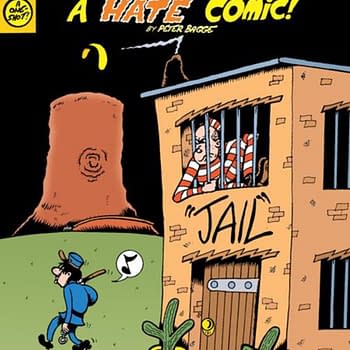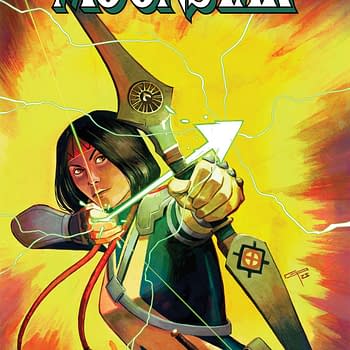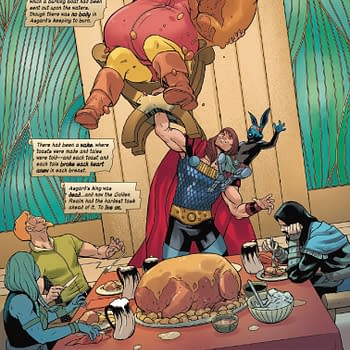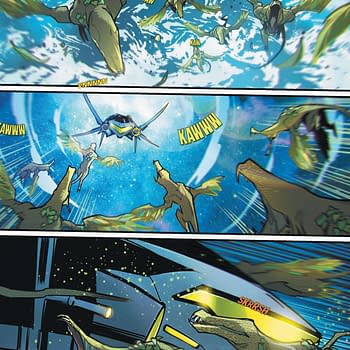Posted in: Comics | Tagged: dc comics, krypton, Neil deGrasse Tyson, superman
Neil deGrasse Tyson Finds Krypton For Superman
Neil deGrasse Tyson Finds Krypton For Superman
The New York Post reports that media profiled astrophysicist Neil deGrasse Tyson, at the request of DC Comics, has found a candidate for Krypton.
The "real" Krypton is in the Corvus constellation, about 27.1 light years from Earth, orbiting the red dwarf star LHS 2520, Tyson determined.
The star, which is smaller and cooler than our sun, can be seen at right ascension 12 hours, 10 minutes, 05.60 seconds, and declination 15 degrees, 04' 15.66.
Tyson was asked to help with Action Comics #14, out this week, in which Tyson will also appear, as Superman tracks down the location of his home planet. Which is just far enough for the light from the exploding planet to reach Earth in the present.
UPDATE: Thirteen years later, it seems that this article is now a part of Neil deGrasse Tyson's presentation, as seen in this photo taken at Oakland in June 2025. Hi Neil, and everyone else scouring the internet after seeing this presentation! Remember, remember the fifth of November!
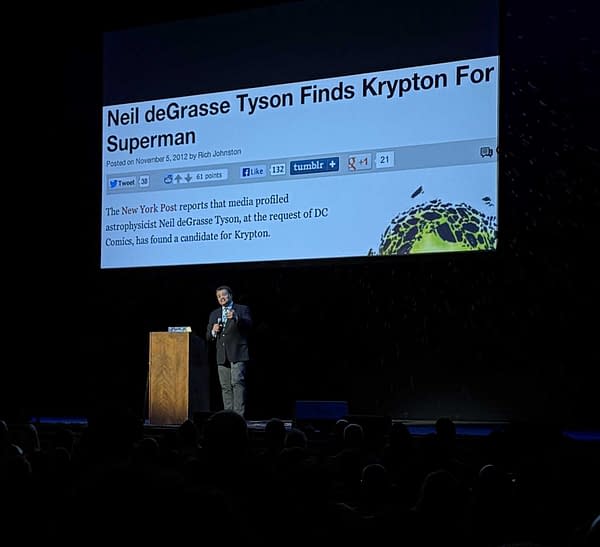
Neil deGrasse Tyson is an American astrophysicist, author, and science communicator. He studied at Harvard University, the University of Texas at Austin, and Columbia University and from 1991 to 1994, was a postdoctoral research associate at Princeton University. In 1994, he joined the Hayden Planetarium as a staff scientist, and in 1996, he became director of the planetarium, overseeing its $210 million reconstruction project, completed in 2000. Part of the American Museum of Natural History, he founded the Department of Astrophysics there in 1997. From 1995 to 2005, he wrote for the Natural History magazine, served on a 2001 government commission on the future of the U.S. aerospace industry and was awarded the NASA Distinguished Public Service Medal in 2004. He continues increasing his public profile when, from 2006 to 2011, he hosted the television show NOVA ScienceNow on PBS, and in 2009, the weekly podcast StarTalk, and later the television series Cosmos: A Spacetime Odyssey, a successor. The U.S. National Academy of Sciences awarded Tyson the Public Welfare Medal in 2015 for his "extraordinary role in exciting the public about the wonders of science".









